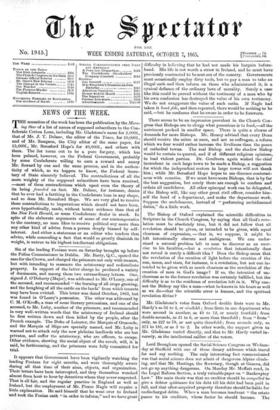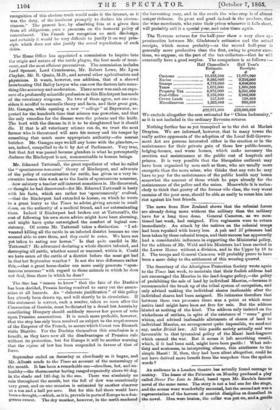Lord Brougham opened the Social Science Congress on Wednes- day
at Sheffield with one of those dreary addresses which travel far and say nothing. The only interesting fact communicated was that social science does not admit of dangerous Alpine climb- ing, and that Mr. Hastings, the Secretary, though at Geneva, did not go up anything dangerous. On Monday Mr. Moffatt read, in the Legal Reform Section, a truly valuable paper on " Bankruptcy Law." His main thesis was that no creditor should be compelled to give a debtor quittance for his debt till his debt had been paid in full, and that after-acquired property therefore should be liable for undischarged debts. When a man becomes insolvent " the estate passes to his creditors, whose factor he should become. The recognition of this obvious truth would make it the interest, as it was the duty, of the insolvent promptly to declare his circum- stances." The present law, by absolving him at a given date from all obligations, puts a premium on the immoral policy of concealment. The French law recognizes no such discharge, and certainly it would be very difficult to justify it on any prin- ciple which does not also justify the moral repudiation of such debts.































 Previous page
Previous page